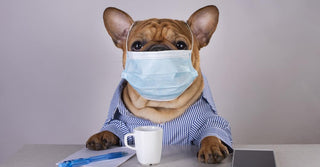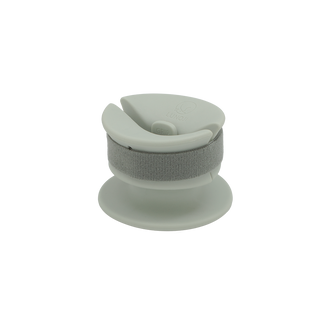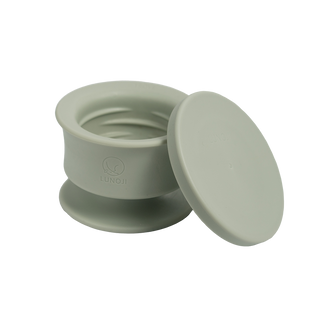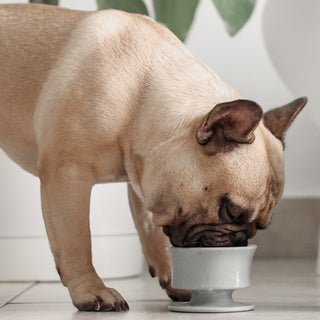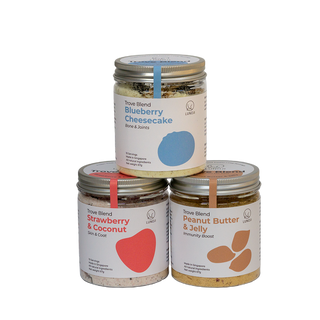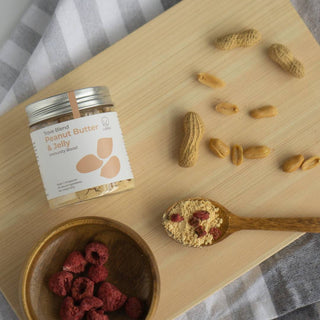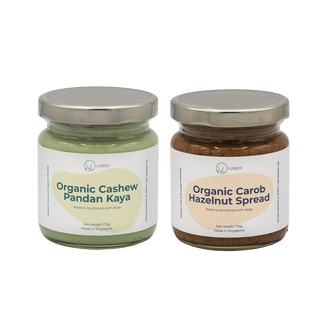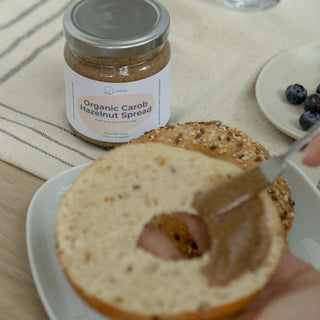When it comes to keeping our dogs healthy, oral hygiene is often overlooked by many dog parents. Good dental care is a big part of keeping your dog healthy.
Why dog dental care is important
Here are some reasons why dental care for your pooch is important:
-
Prevent gum disease and tooth loss: Dog teeth cleaning prevents inflammation and gum infection like gingivitis caused by build-up of bacteria in their mouth. These ailments can cause teeth-supporting structures to fail and teeth to loosen even fall out. Remember, like humans, dogs will only have one set of teeth after puppyhood, so take good care of them!
-
Prevent dog bad breath: Cleaning your dog’s teeth regularly can help prevent the development of that dreaded smelly breath through the growth of odour-causing bacteria, which thrive on food particles not removed from the teeth.

-
Prevent organ damage: Dental problems can actually lead to issues with your dog's major organs. The plaque causing bacteria can enter the bloodstream and can spread over time to the organs like heart, liver, and kidneys, causing major health complications.
-
Save money in the long run: You might spend a little more effort and money upfront, but early prevention of dental health problems will help you save huge vet bills and prevent big problems in the future. Good dental hygiene give you peace of mind in the long-run.
Process of dog teeth cleaning
Here are some amazing ways to keep your dog’s oral health in top-notch condition.
Teeth brushing:
Brushing your dog's teeth regularly is a great way to prevent dog bad breath and plaque build-up. You’ll want to get a toothpaste and toothpaste made specifically for canines. Don’t use human toothpaste as most of them contain chemicals such as xylitol and SLS which are toxic to dogs when ingested; there’s a reason we spit toothpaste out!

It can take time for your furry to get used to regular teeth brushing, but the benefits are worth the patience.
Start slow and conclude each session with lots of praise even if the process didn't go well. Offer your fur buddy a special reward like playtime or treat so that your dog can form a positive association with brushing. Over time this will make the process much easier.
Dog chews:
If you're like most dog owners, you'll find it difficult to keep up with teeth brushing everyday. Dog chews can have amazing teeth-cleaning properties and complement teeth brushing well. Gnawing on the right chew can mechanically scrape plaque off your dog’s teeth to the gum line, and produces more doggy saliva to coat teeth, which is alkaline in nature and helps prevent cavities.
By regularly providing appropriate long lasting chews, your dog will end up with better oral health. It will also help your pooch exercise their jaw muscles, prevent boredom and satisfy your dog's natural instinct to chew.

Opt for low-calorie, long-lasting, single-ingredient natural dog chews.
Dog dental treats:
Dental treats are a very good way to improve your dog's oral health while on the go or in training sessions. These treats can be made specifically to remove plaque build-up and often contain ingredients that prevent dog bad breath and clean your dog’s mouth.
Dog dental treats come in a wide variety of shapes, sizes, and flavours. Be sure to choose ones which encourage your dog to actually chew before swallowing; just a small increase in size can make a significant difference. Be aware of over treating though, and reduce their meals accordingly, as these treats can quickly stack up in calories.
Dental cleaning vet visit:
A professional teeth cleaning visit for your dog will include a thorough dental examination, scaling to remove the tartar and plaque, as well as any surgical procedures such as extractions (hopefully not!) that need to be performed. Your vet will have to put your dog under general anaesthesia (GA) to do even a simple clean, so you’ll have to accept the risks and often significant costs that come with it.
Senior dogs may not be suitable given the higher risks involved; consult your vet to get their professional opinion.
In closing
So, ready to keep your dog’s teeth clean? Keeping your furry pal healthy and happy includes taking care of their oral hygiene. With little effort, patience and dedication, dog dental care can easily become a part of your lifestyle. If you’re new to dental care routine, start with small steps and gradually increase frequency and steps.

It may be hard to brush your dog's teeth at first. Focus on getting them used to you touching their muzzles and gums for short periods initially.
You’ll reap the rewards of your efforts in the form of a healthier, happier dog in time!

